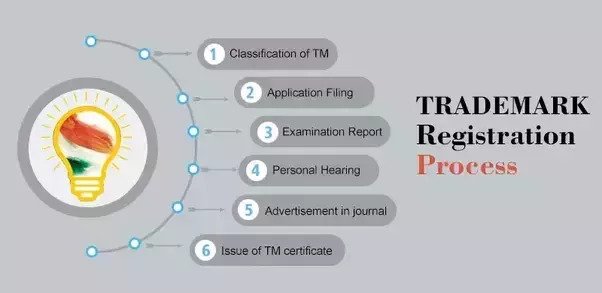
The world of business has never been a realm for niceties. Cutthroat practices and underhanded dealings are hardly the sole domain of the digital age. Nonetheless, the threats presented to nascent entrepreneurs when conducting business in the internet era are not to be ignored. The digital age has led to fierce competition between SMEs and as customers become more and more fickle, businesses of all shapes and sizes are tripping over themselves in an effort to secure their loyalty and ongoing custom. In this era, it’s more important than ever to establish yourself as a step above your competitors. Here is where your IP becomes your USP. The best way to not only survive but thrive in the face of such stiff competition is to offer something to the consumer that your competitors cannot.
This is why so many businesses channel a great deal of their resources into the research and development of new products and processes. Sometimes one good idea is what separates a market leader from an also-ran. But even if you do have that “Eureka moment” and develop something that could potentially take your business to the next level, it’s vitally important that you take steps to guard your intellectual property. Ideas are an especially valuable commodity in a marketplace rife with competition where businesses are constantly on the lookout for ways to blow their rivals out of the water. If you’re not prepared to exercise due diligence, you may find your bold new product idea advertised on a competitor’s website before you’ve even gone to the prototype stage.
Idea theft is a very real threat to small businesses. Not only can it rob your business of a potentially lucrative USP, it can be extremely hard to prove. This is why you should call John Cutter Investigations or a similar private investigator in your area. However, even if you are successful in proving idea theft, it can be a hard won victory after a long, complicated and potentially expensive legal battle. As in most things, prevention is the best cure. Here are some easy and actionable ways in which you can protect your IP throughout the entire process from inception to launch…
Disclose as little as possible

How to protect Intellectual property [Tips to keep IP safe ]
You’ll likely need to pitch your new idea to investors, board members or your business partners, and as much as you may trust them, disclosing too much at this early stage could put your ideas at risk. Convey only the bare minimum required in order for the investor to understand the basic premise of the product or process. Leave out the specifics of how it will work. There may, however, be circumstances where you need to be a little more forthcoming. If you’re looking for investment, it’s not unreasonable to expect investors to want as much information as possible to make an informed choice about whether or not to invest. In this case it’s essential to…
Use NDAs

NDAs, Confidentiality Provisions And How To Make Sure Your IP Stays Yours
Non Disclosure Agreements are essential in helping to combat idea theft. They are essential to ensure the peace of mind of knowing that you can hold those to whom you disclose to account should you suspect idea theft at a later date. Investors may balk at the idea of signing an NDA so instead of hitting them with it up front, it may be better to build a confidentiality statement into your business plan. The good news is that idea theft is less likely to come from prospective investors than it is from people who will be working on the development of your idea who feel that they could make more money by selling it elsewhere. This is the kind of situation where an NDA provides ideal protection.
Do your homework before you pitch
Ideally, you want to know that the people to whom you’re about to pitch your ideas can be trusted before you even sit around the table together. Thus, it’s vital that you research the people around the table, especially if you have not done business with them before. Look for any history of legal disputes with former partners. This information is all a matter of public record so should be easy to track down.
Applying for a patent

Intellectual property strategies for startups
Many are surprised to learn that applying for a patent can be a cripplingly expensive process for smaller startups. Moreover, if you haven’t begun developing your idea in earnest you may well be putting the cart before the horse. A provisional patent may be a suitable interim measure which protects your idea for the first year without the expense or logistical constraints of applying for a patent proper. If you choose to do this, however, keep in mind that provisional patents expire after 12 months and cannot be renewed.
Trademark your product name

At what point in a startup should you file a trademark?
While protecting the name of a product isn’t necessarily the same as protecting the product itself, it can provide an extra layer of protection and afford you peace of mind, especially if you’ve yet to navigate the legalities of applying for a patent. In most cases, however, the name of a product is intrinsically tied to its function (it’s hard to market a product if its potential market can’t quickly and easily identify what it is). Thus, applying for the trademark of a name can prove an effective deterrent to idea theft, while also providing you with documentary evidence that your product is in a state of active development, should you (Heaven forbid) need to make a claim of idea theft at a later date.
Create a paper trail
It would be extremely foolhardy to steal an idea when said idea has a timestamped paper trail documenting every single stage of its development. Create documentation for every conversation, logging dates and times and create an ongoing journal, documenting every conversation, activity, sketch, blueprint and brainstorming session linked to the idea’s development.
Don’t let fear of idea theft cripple you with fear and prevent a potentially lucrative product from launching. Even without spending a fortune in legal fees and administrative process, you can take steps to give yourself the peace of mind of knowing that your idea remains your own. Who knows? It could completely change your business and even the world!




